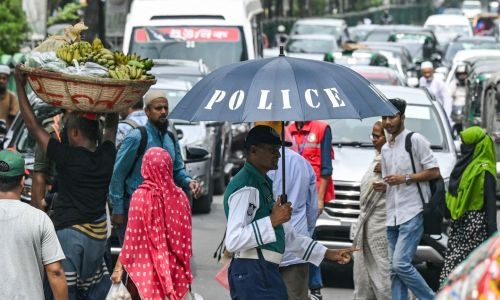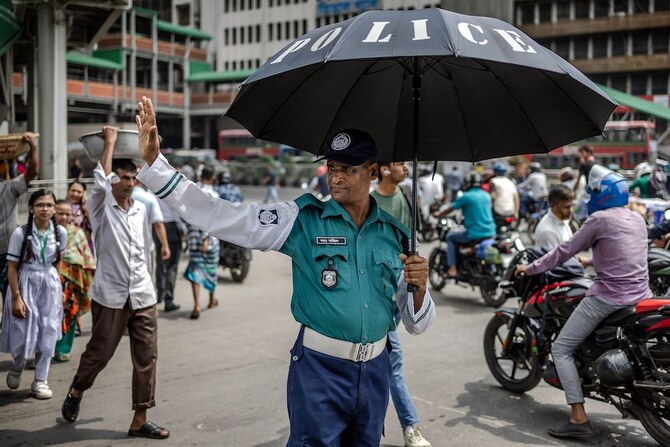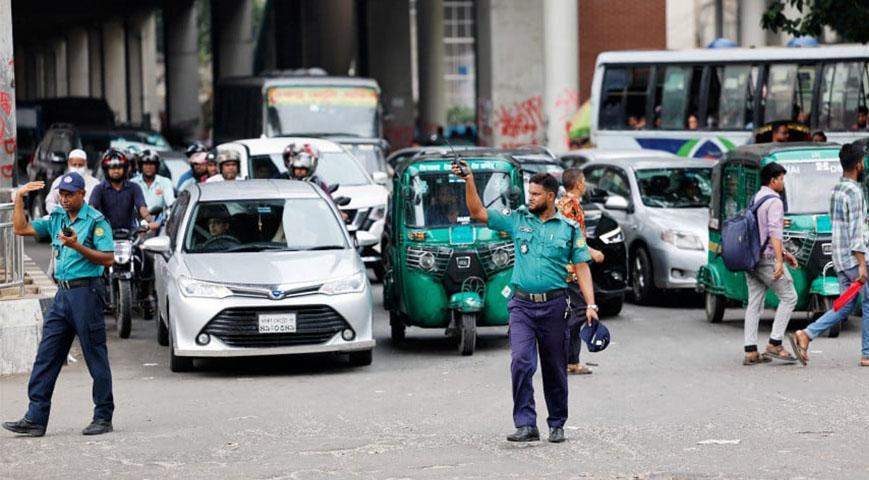Bangladesh’s police force resumed patrolling, concluding a weeklong strike sparked by former prime minister Sheikh Hasina's sudden departure.
Hasina’s abrupt resignation and departure abroad, which marked the end of her 15-year rule, left the capital’s 20 million residents without law enforcement last week.

Police officers had initially vanished from the streets following widespread discontent over their involvement in a deadly crackdown on peaceful student-led protests against Hasina’s government. This crackdown resulted in over 450 deaths, including 42 police officers.
Did you read this?
The officers had demanded assurances of their safety before returning to work, eventually agreeing to resume duties after late-night negotiations with a new interim government led by Nobel laureate Muhammad Yunus.
“We are back on duty now that we feel secure,” Assistant Commissioner Snehasish Das told AFP at a bustling intersection. The student-led demonstrations, initially peaceful, escalated into a revolution that toppled Hasina’s government, according to Yunus, who stepped in at the students’ request.

Several high-profile figures aligned with Hasina, such as the chief justice and the central bank governor, resigned under pressure from the protestors. Yunus emphasized that these resignations were legally executed.
During the police strike, arson and vandalism targeted around 450 of the country’s 600 police stations. Maintaining its reputation by abstaining from the crackdown, the army provided security as some stations reopened. In the police’s absence, students took on the role of maintaining order, acting as traffic controllers and neighborhood patrols.
Yunus’s interim cabinet, now in charge of the nation, expressed concern over attacks on minorities, particularly Hindus, who make up eight percent of Bangladesh’s 170 million population.
In response, Jamaat, the largest Islamist party, planned to meet with minority leaders to address the tensions. Meanwhile, the new government affirmed that Hasina’s Awami League party would not be banned, encouraging them to participate in upcoming elections.









